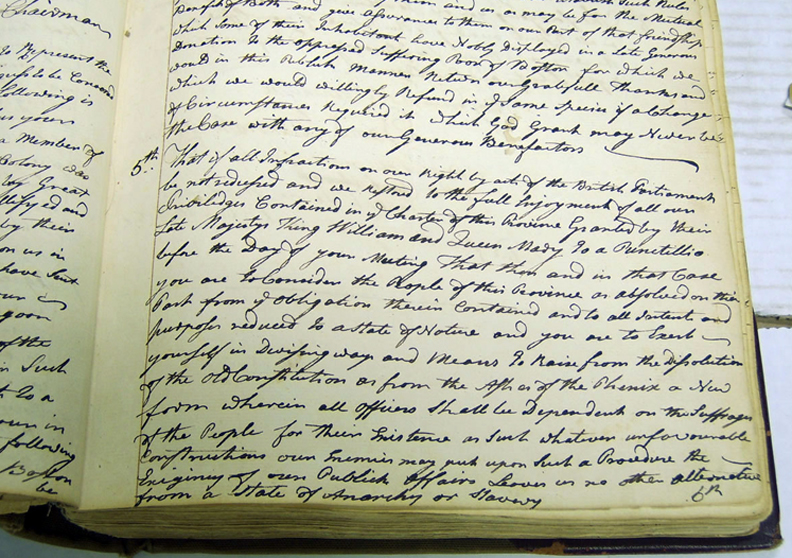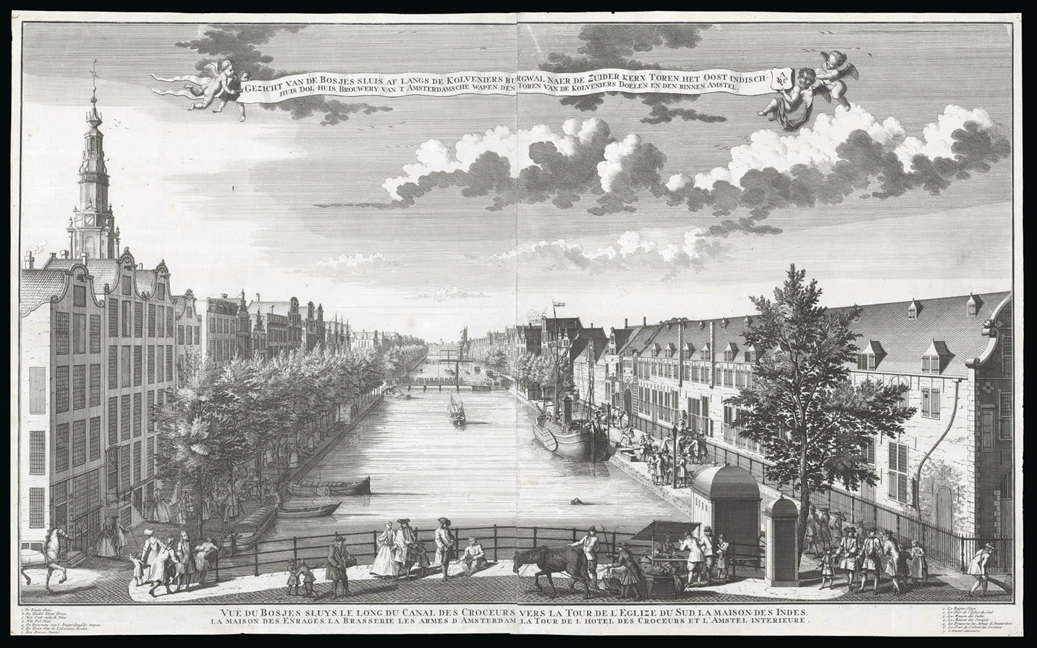
On 6 December 1773, Lt. Col. Alexander Leslie of the 64th Regiment of Foot wrote a letter to the highest ranking official in the British army, Lord Viscount Barrington, the Secretary at War. It may seem unusual for an officer of Leslie’s rank to write directly to an officer subordinate only to the King, but the army was not particularly large and Leslie happened to be the highest ranking army officer in Boston at that time. He was little more than a spectator to the rapidly increasing political tensions in the colony of Massachusetts, being posted with his regiment in barracks at Castle William on an island in Boston Harbor. Although they were posted there to avoid violent altercations with the populace, such as those that had occurred in 1770, the location meant that they were unable to protect government interests in Boston. Instead, Lt. Col. Leslie played host to customs officials and tea agents who took refuge on Castle William lest they be subjected to abuses from Boston’s citizens.
The 6 December letter was a brief status report on growing tensions in town. Leslie lamented that Governor Hutchinson had not sought the local council’s consent to call on the 64th Regiment to move from their island base to the town. This was annoying not only because of the overall tensions, but also because that same council had placed guards from a locally-raised corps of cadets on ships carrying cargoes of tea; the guards were there not to protect the tea, but to prevent it from being unloaded. Leslie wanted the governor to mobilize his regiment of professional soldiers, noting that “when he does, I hope they will Execute his Orders to their own Credit.”
Eleven days later, Lt. Col. Leslie wrote another letter to Barrington, this time with more dire news: the colonists had destroyed the cargoes of tea in Boston harbor. Written on the day after the event, Leslie’s may be the first account of the incident written by a British officer. He wrote:
Castle William 17th Decr 1773
My Lord
I did myself the honor to write your Lordship last Saturday, since then the Sons of Liberty have destroy’d 340 Chests of Tea on board three ships, that lay all together at one of the Wharfs.
The fourth vessel that brought the Tea is strand’d near to Cape Cod, but the Tea was got safe on Shore, and it’s expected by this time it has fared the same fate as the rest.
I had the regiment ready to take their Arms, had they been called upon.
I am informed the Council would not agree to the Troops going to town, however it must end in that at last. Lenity won’t do now with the People here. The Gentlemen that took refuge here still continue, and likely to remain, for the mob threatens them much if they go to town, in short they rule every thing at present.
The Governor who is now on the Island has wrote to My Lord Dartmouth on this late Affair.
I have the honor to be My Lord
Your most Obedient
and most humble Servant
Alexr. Leslie
Although brief, Lt. Col. Alexander Leslie’s account of the destruction of the tea reveals the military man’s frustration at being isolated on an island, unable to have prevented this or to protect against future attacks. He was a soldier in command of a regiment, with the tools to act but orders to remain inert. His fortunes would, however, change dramatically during the coming year as a military buildup in Boston pushed the crown and the colonies unceasingly closer to conflict.
[Both of Alexander Leslie’s letters to the Secretary at War are in the British National Archives, WO 1/40, in a bundle docketed “Report of the destruction of the tea in Boston Harbour by the ‘Sons of Liberty.’”]









4 Comments
Good find Don. I was using a near identical letter, Lt. Col. Leslie to Maj Gen. Haldimand, Dec 20, 1773, in Scull’s Montresor Journals 532. http://google.com/books?id=RVIOAAAAIAAJ
Derek
Well, maybe “very similar” rather than “near identical”…
Thanks for posting Leslie’s letter.
I think Lt. Col. Leslie and Admiral Montagu lost control of the situation as soon as they let Capt. Hall sail the Dartmouth into Boston Harbor on Nov. 28, 1773. According to the ship’s log, the Dartmouth reached Castle William on the 28th, and remained anchored there all day under the admiral’s stern. Once Hall went to the customhouse to report the arrival of his ship, the Sons of Liberty coerced him to sail the Dartmouth into the harbor and tie up at Griffin’s Wharf. It is my belief that once the tea was at Griffin’s Wharf it’s fate was set; the British would never allow it to be reshipped to London and the Boston patriots would never allow it to be landed.
To read these letters, I find most interesting as one of the protaganists, Benjamin Edes, is my great grandfather seven generations back, his son Peter incarcerated for 105 days. I have a copy of the reprint of his diary from his time in the gaol, printed by the De Burians, which makes for interesting reading of his experiences at that time. The 16th of December in our household is a special day for good reason.